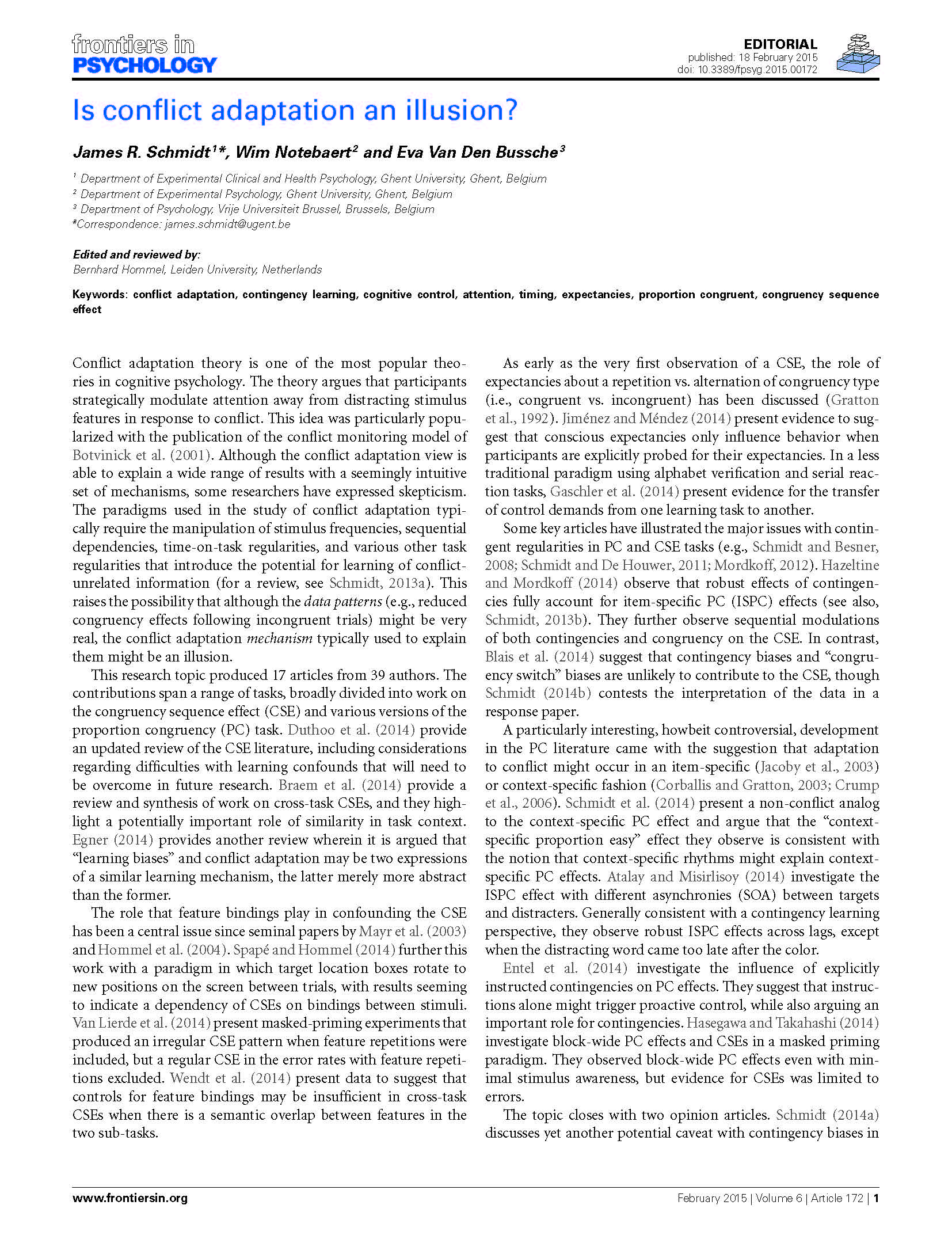This editorial provides an overview of the papers presented in the issue Frontiers in Psychology. Conflict adaptation theory is one of the most popular theories in cognitive psychology. The theory argues that participants strategically modulate attention away from distracting stimulus features in response to conflict. This research topic produced 17 articles from 39 authors. The contributions span a range of tasks, broadly divided into work on the congruency sequence effect (CSE) and various versions of the proportion congruency (PC) task. Whether or not conflict adaptation is merely an illusion is still an open question, but the contributions of the current research topic add interesting new layers to the debate. We hope that this research topic will open new avenues for research in the area that may lead to more definitive answers.
Is conflict adaptation an illusion?
